How AI in ERP Software Transforms Business Decision-Making
Modern businesses run on data. The challenge is not finding data but using it in time to make the right decisions. This is where AI-powered ERP Software is changing how companies plan, operate, and grow. By bringing artificial intelligence into enterprise resource planning systems, businesses can turn complex data into clear, actionable insights.
Understanding the Role of AI in ERP Software
ERP Software connects core business functions such as accounting, inventory, sales, and HR in one system. When AI features are added, the ERP becomes far more intelligent. It learns from company data, automates decisions, and helps teams act quickly with better accuracy.
For example, AI-based ERP systems can identify spending patterns, predict customer demand, or detect risks before they become problems. Instead of manually reviewing hundreds of reports, managers can rely on AI to surface the most relevant insights in real time.
This means decision-making shifts from reactive to proactive. Businesses can plan confidently, knowing that their ERP system provides data-driven suggestions backed by real trends.
Predictive Analytics for Smarter Decisions
Traditional ERP systems store data. AI-driven ERP systems analyze it. Predictive analytics is one of the strongest tools AI brings to ERP. It uses past data to forecast future outcomes such as inventory shortages, seasonal sales spikes, or equipment maintenance needs.
This ability allows companies to prepare ahead. For instance, a retail business using Finac ERP can predict which products will sell faster next month and adjust stock levels accordingly. A manufacturing firm can identify when machinery might need servicing, preventing production delays.
These insights reduce waste, save time, and improve profit margins. Predictive analytics in ERP Software gives business leaders confidence to make faster, data-supported decisions.
Real-Time Data Visibility and Automation
AI improves ERP Software by turning real-time data into instant actions. Every transaction, from purchase orders to customer payments, feeds into the system automatically. Instead of waiting for end-of-month reports, managers see live dashboards showing the company’s performance.
This real-time visibility helps identify trends, spot issues early, and react quickly. For example, AI can flag unusual financial activity or supply chain delays. Automated alerts ensure that decision-makers act immediately instead of after losses occur.
Finac ERP, with AI capabilities, ensures that your data is always updated, accurate, and accessible from anywhere. This level of automation minimizes human error and frees up employees to focus on strategic work.
Personalized Insights for Every Department
AI in ERP Software doesn’t only benefit leadership. It supports every department.
In finance, AI helps forecast revenue and manage budgets based on spending behavior. In human resources, it analyzes employee data to predict attrition or identify skill gaps. In sales, it finds high-value leads and recommends personalized engagement strategies.
Each department gets the insights it needs without running complicated reports. The system learns what matters most to each team and adjusts dashboards and recommendations automatically. This kind of personalization makes the ERP a partner in decision-making rather than just a tool for data entry.
Enhanced Accuracy in Financial Planning
One of the biggest advantages of AI-enabled ERP Software is accuracy in financial decisions. Manual forecasting often relies on assumptions. AI removes guesswork by analyzing large data sets from multiple sources—sales, expenses, market trends, and customer patterns.
It detects hidden patterns that humans might miss. For example, if a particular product’s demand drops in certain months, AI can alert the finance team early. This helps plan budgets, manage cash flow, and avoid overspending.
By automating complex calculations and eliminating human bias, AI ensures financial reports are more precise, saving time and reducing costly errors.
Streamlining Supply Chain Decisions
A business is only as strong as its supply chain. AI-powered ERP Software makes supply chains more intelligent by predicting disruptions, optimizing routes, and managing suppliers efficiently.
AI studies supplier performance, delivery times, and raw material costs. It suggests the best vendors, flags potential shortages, and recommends alternate routes in case of delays. This level of visibility helps companies maintain consistency and customer satisfaction.
With Finac ERP’s AI capabilities, companies can make supply chain decisions faster, cut unnecessary costs, and maintain reliable operations even during uncertainty.
Improving Customer Experience Through Data
Customer data is another area where AI-driven ERP Software adds value. It brings together customer interactions, purchase history, and feedback from multiple channels. AI analyzes this data to understand preferences, buying behavior, and satisfaction levels.
This helps businesses design better marketing strategies, create personalized offers, and respond faster to customer needs. For example, if AI detects that customers are repeatedly requesting faster delivery, it can recommend changes in logistics or stock placement.
When customer needs are predicted rather than just reacted to, satisfaction and loyalty naturally increase.
AI-Driven Decision Support Systems
An AI-enabled ERP doesn’t just store information. It supports decisions with clear recommendations. Decision support systems (DSS) built into modern ERP solutions process large volumes of structured and unstructured data, identify trends, and suggest next steps.
For example, if sales drop in a region, the ERP system might recommend increasing digital campaigns or reviewing pricing strategies. If project costs are rising, AI can point out which expenses are exceeding budgets and why.
This direct link between data and action helps businesses move faster and stay competitive.
The Future: Continuous Learning and Adaptation
Unlike static systems, AI in ERP Software keeps learning. Each new data entry, customer order, or performance result teaches the system more about how the business operates. Over time, it becomes smarter and more aligned with the company’s goals.
This continuous learning improves decision-making across all levels. Executives get sharper forecasts, managers get instant reports, and employees get the tools to make informed choices daily.
AI-driven ERP systems will soon evolve to not only support decisions but also make autonomous suggestions, creating a self-optimizing business environment.
Why Businesses Choose Finac ERP
Finac ERP brings together automation, analytics, and AI to give organizations a clear edge. It helps businesses manage operations in real time, from accounting and finance to sales and supply chain.
What makes Finac ERP stand out is its user-friendly design and smart data analytics. It helps companies uncover insights they didn’t even know existed. The system’s AI engine continually refines predictions to ensure that every business decision is guided by accurate, real-time information.
With Finac ERP, organizations experience higher efficiency, better forecasting, and stronger decision-making at every level.
Conclusion
AI is changing how businesses work, and ERP Software is at the center of this change. By combining artificial intelligence with real-time data, companies can make faster, more confident, and data-driven decisions.
Finac ERP helps businesses simplify complex operations, reduce risks, and uncover new growth opportunities. It turns everyday data into a reliable decision-making tool for every department.
Take the next step toward intelligent business management. Connect with Finac ERP today and see how smarter ERP Software can transform your decision-making and future growth.

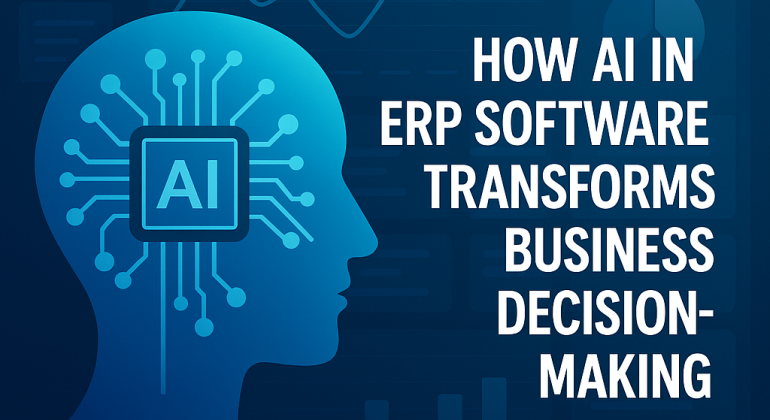
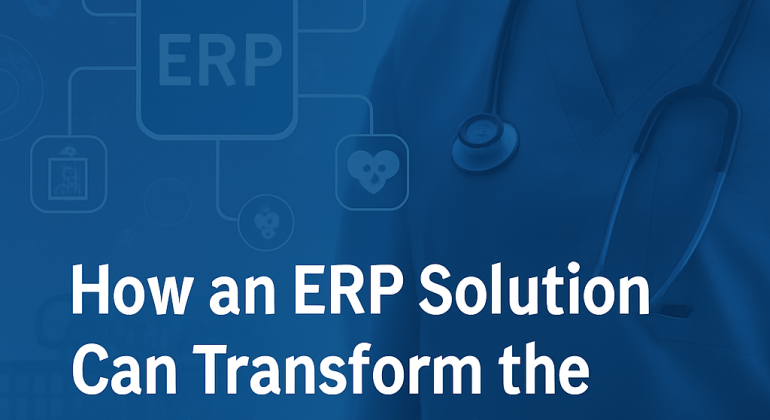
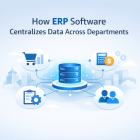
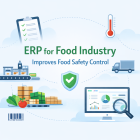
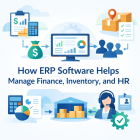
Recent Comments